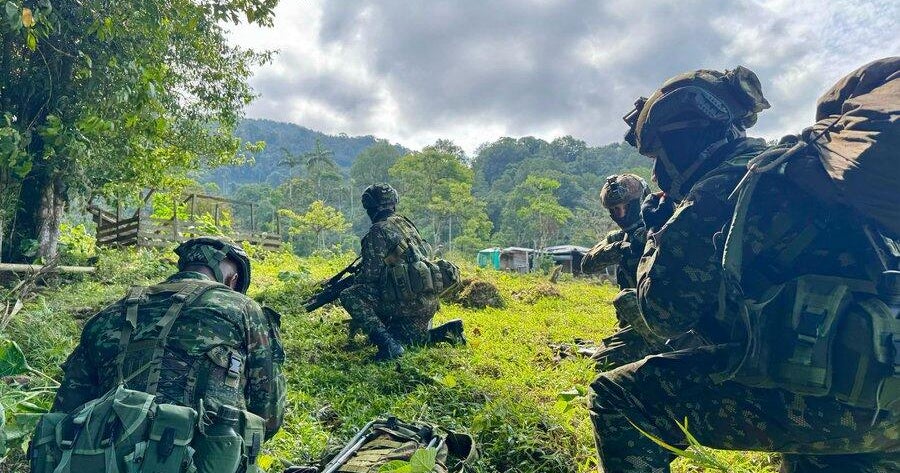Bloodshed in Colombia: Cartel Retaliation Claims Eight Lives
In a brutal escalation of cartel violence, eight members of a powerful Colombian drug trafficking organization were executed in a coordinated attack early Tuesday morning. The massacre occurred in the rural municipality of Tibú, near the Venezuelan border, and appears to be direct retaliation for last week’s assassination of a high-ranking cartel commander. Authorities report the victims were ambushed with automatic weapons while traveling in a convoy, marking the deadliest cartel-related incident this year.
Escalating Violence in the Criminal Underworld
The recent bloodshed highlights the volatile power dynamics within Colombia’s criminal networks following the government’s intensified crackdown on drug trafficking. According to National Police records, cartel-related homicides have increased by 17% compared to the same period last year, with 243 fatalities recorded since January.
- The victims belonged to the Gulf Clan, Colombia’s most powerful drug cartel
- Attack occurred at 3:15 AM along a remote jungle road
- Forensic evidence suggests multiple shooters used AR-15 rifles
“This wasn’t just an attack—it was a statement,” said security analyst Dr. Carlos Méndez of Bogotá’s Rosario University. “The precision and brutality suggest this was calculated retaliation from either a rival faction or internal challengers seeking to fill the power vacuum.”
The Catalyst: Commander’s Assassination
The violence stems from the June 12 assassination of alias “El Químico,” a Gulf Clan commander who controlled key cocaine smuggling routes through Norte de Santander department. His killing, allegedly by the rival Pachenca faction, triggered immediate threats of reprisal.
Security camera footage from a nearby farm shows the attack lasted approximately 90 seconds, with gunmen blocking the convoy’s path before opening fire. The victims, all males aged 22-38, were reportedly mid-level operatives responsible for drug shipments and extortion operations.
Government Response and Regional Impact
Defense Minister Iván Velásquez has deployed two additional army battalions to the region, acknowledging the situation threatens recent security gains. “We will not allow criminal groups to turn our countryside into a battleground,” Velásquez stated during a press conference.
However, local residents express skepticism. “The soldiers come for a week, then the cartels return,” said Tibú community leader María Fernanda Rojas. “We’re trapped between the crossfire and corrupt officials.”
The violence has broader implications for Colombia’s drug trade:
- Potential disruption of 15-20% of cocaine exports to the U.S. and Europe
- Increased risk for oil infrastructure in the Catatumbo region
- Possible spillover violence into Venezuela
Historical Context of Cartel Wars
This latest confrontation follows a pattern of cartel fragmentation and territorial disputes since the 2016 peace agreement with FARC rebels. With the guerrilla group’s departure from drug trafficking, multiple criminal organizations have fought to control:
- Cocaine production labs (estimated 1,200 active nationwide)
- Shipping routes through the Caribbean and Pacific
- Illegal mining operations
According to UN Office on Drugs and Crime data, Colombia produced 1,400 metric tons of cocaine in 2022—enough to supply global markets for nearly two years. The lucrative trade fuels constant violence, with over 3,000 cartel-related deaths since 2020.
Expert Perspectives on the Crisis
Retired General Óscar Naranjo, former National Police director, warns the situation may worsen: “These groups have more firepower than ever before. We’re seeing military-grade weapons, drones, and sophisticated communications—all funded by drug profits.”
Conversely, human rights advocates argue militarized responses fail to address root causes. “As long as impoverished rural communities lack alternatives, cartels will find recruits,” said Amnesty International’s Colombia researcher Daniela Soto.
What Comes Next in Colombia’s Drug War?
The government faces mounting pressure to demonstrate progress before October’s municipal elections. Proposed measures include:
- Creating a specialized anti-cartel task force
- Expanding aerial eradication of coca crops
- Offering new rewards for cartel leaders’ capture
Meanwhile, security analysts predict further violence as factions jockey for position. The Gulf Clan alone has approximately 1,800 armed members divided among competing factions, according to military intelligence reports.
For international observers, the bloodshed underscores Colombia’s ongoing struggle to balance security and peacebuilding. As the Biden administration considers recertifying Colombia as a counterdrug ally, these events may influence foreign policy decisions and aid allocations.
Concerned citizens can monitor official updates through Colombia’s Defense Ministry alert system, while humanitarian organizations seek volunteers to assist displaced families in conflict zones.
See more ABC News Feed



